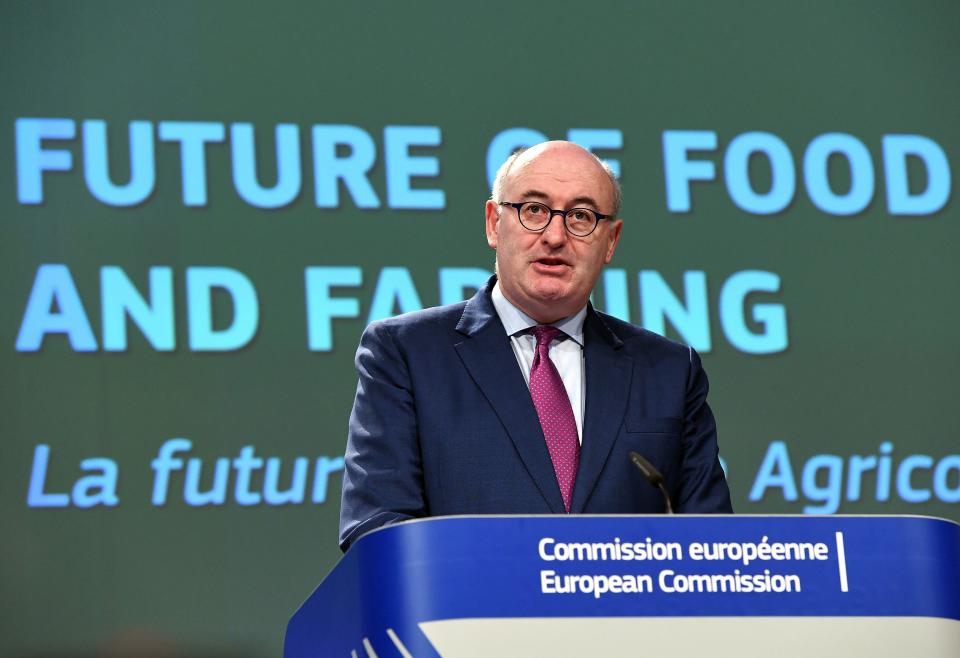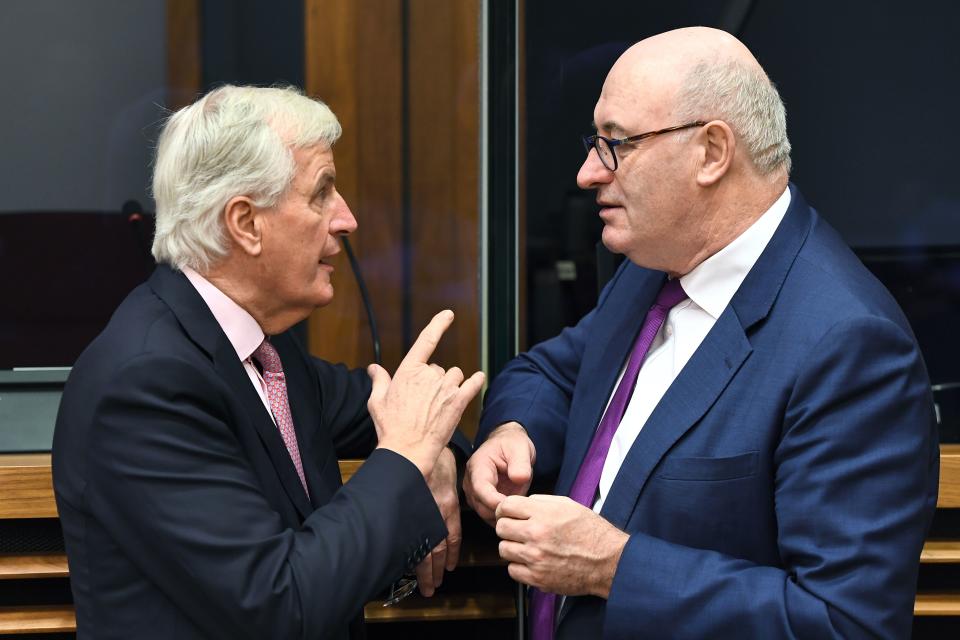Brexit has put other countries off leaving the EU, says Irish Commissioner

Brexit has made it “far less likely” that another country will leave the EU, Ireland’s European Commissioner has said.
In a speech at the Irish representation in Brussels, Phil Hogan said EU leaders have accepted the UK is leaving and that he “cannot imagine any circumstances in which the UK will change its mind.”
But he criticised the “rosy picture” of Brexit he said had been painted by Prime Minister Theresa May and predicted the UK will pay a price that will stop other countries contemplating a split.
Reflecting on negotiations so far, he said: “This has been a journey into the unknown and, for the EU, it has had the added importance of providing a precedent if ever another member felt this was a wise course to follow.
“But, frankly, that hardly seems likely – and is now far less likely than it was before Britain’s referendum vote.
“Because one thing we have already learned from Brexit is that the UK does not have a better idea: it does not have a replacement for the Union as a way to improve the life quality of its citizens, its businesses, and its standing in the world.”
Prime Minister Theresa May set out her vision for a “global Britain” in her Mansion House speech last month.
She said: “This is an optimistic and confident future which can unite us all.
“A Global Britain which thrives in the world by forging a bold and comprehensive economic partnership with our neighbours in the EU; and reaches out beyond our continent, to trade with nations across the globe.”

Mr Hogan said he “hopes she is right for the sake of UK citizens” but went on to list “stubborn facts” which he said overshadow her “rosy picture.”
He said Brexit would mean a “return to medium-sized nation status” for the UK, leaving it with “reduced bargaining power” in global trade and more trade barriers with the EU.
The Commissioner for agriculture also predicted Britain would have to pay a high price in consumer standards for a rapid trade deal with the US.
“Stepping into Global Britain is stepping into a difficult world. And there will be a huge gap between hope and experience,” he concluded.
“As I say, one hopes that Prime Minister May’s confidence is not misplaced.”
Mr Hogan’s comments come days after a poll in traditionally Eurosceptic Denmark showed support for the EU had risen as a result of Brexit.
But the EU faces another major internal challenge after the Fidesz party of Hungary’s right-wing Prime Minister Viktor Orban yesterday won a fourth consecutive term in government.
Although Mr Orban is in the same political group as European Commission president Jean-Claude Juncker, he is a fierce critic of Brussels – particularly over migration – and his victory has been welcomed by Eurosceptics.
UKIP MEP Nigel Farage branded him “the strongest leader in Europe and the EU’s biggest nightmare.”

 Yahoo Finance
Yahoo Finance 